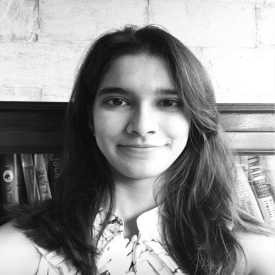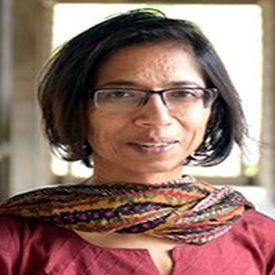The distributional consequences of political reservations
This article identifies and attempts to fill in the gaps in understanding the effects of reservations for Scheduled Castes (SCs) in Panchayats. Using data from a state-wide census, multiple administra...
-
 Chinmaya Kumar
Chinmaya Kumar  M.R. Sharan
M.R. Sharan  28 November, 2023
28 November, 2023
- Articles
Caste-based differences in self-help groups: Evidence from a rural livelihood programme
The National Rural Livelihood Mission aims to increase income and improve wellbeing for rural households. Using survey data from nine states in India, this article analyses the existence of caste-base...
-
 Chandan Jain
Chandan Jain  Krishna Kejriwal
Krishna Kejriwal  Ritwik Sarkar
Ritwik Sarkar  Pooja Sengupta
Pooja Sengupta  05 August, 2022
05 August, 2022
- Articles
India’s Women’s Reservation Act: A big win for governance and beyond
Amidst debates about the recently passed women's reservation act and whether it will reduce gender disparities on the ground, Wattal and Gopalan summarise evidence from a number of randomised evaluati...
-
 Akshara Gopalan
Akshara Gopalan  Urvashi Wattal
Urvashi Wattal  15 December, 2023
15 December, 2023
- Perspectives
Where have all the young girls gone? The rise in female foeticide in India
Gender inequality remains a huge issue in India and policies aimed at changing this are welcome. But this column finds that an unintended consequence of the introduction and spread of ultrasound scans...
-
 Sonia Bhalotra
Sonia Bhalotra  07 November, 2012
07 November, 2012
- Articles
What explains gender disparities in economic participation in India?
The UN Global Gender Gap data shows that women’s economic participation and opportunity is worse in India than in 95% of all other countries studied. This column attempts to uncover what drives the ...
-
 Ejaz Ghani
Ejaz Ghani  William Kerr
William Kerr  Stephen D O'Connell
Stephen D O'Connell  21 August, 2012
21 August, 2012
- Articles
The persistence of caste in India: An economic explanation
Despite many efforts by the government and by civic institutions, the caste system continues to have a firm hold on Indian society. This column presents an economic explanation for this persistence an...
-
 Kaivan Munshi
Kaivan Munshi  16 July, 2012
16 July, 2012
- Articles
Does Female Leadership Impact on the Quality of Public Goods? Evidence from a Public Poverty Alleviation Programme in Andhra Pradesh, India
This project used the nationwide policy of randomly allocating village council headships to women to identify the impact of female political leadership on the governance of projects implemented under ...
-
 Farzana Afridi
Farzana Afridi  Vegard Iversen
Vegard Iversen  M.R. Sharan
M.R. Sharan  01 April, 2012
01 April, 2012
- IGC Research on India
Belief Formation of the Returns to Schooling and How to De-Bias Incorrect Beliefs
This project investigates how poor households in rural and urban Rajasthan form beliefs about the value of additional years of schooling.
-
 James Berry
James Berry  Lucas Coffman
Lucas Coffman  31 March, 2012
31 March, 2012
- IGC Research on India
Twitter feed
Tweets by Ideas4IndiaMost Popular Social Identity Posts
A division of labourers: Caste identity and efficiency in India
Castes in India are closely associated with certain occupations and determine the jobs done by millions. This study uses a new dataset to show that a large proportion of workers still work in their ca...
 Guilhem Cassan
Guilhem Cassan  Daniel Keniston
Daniel Keniston  Tatjana Kleineberg
Tatjana Kleineberg  18 November, 2022
18 November, 2022
- Articles
Sex ratios and religion in India and South Asia
In South Asia, low child sex ratios are increasingly an isolated Indian phenomenon. Within India, child sex ratios are ‘normal’ among Christians and Muslims but much lower among Hindus, Sikhs, and...
 Swati Narayan
Swati Narayan  03 April, 2019
03 April, 2019
- Articles
Hindu-Muslim fertility differentials in India: An update
Building on past research, Saswata Ghosh and Pallabi Das estimate the state- and district-level fertility differentials between Hindus and Muslims using data from the latest round of the NFHS. They sh...
 Pallabi Das
Pallabi Das  Saswata Ghosh
Saswata Ghosh  18 April, 2023
18 April, 2023
- Articles





 30 March, 2023
30 March, 2023






